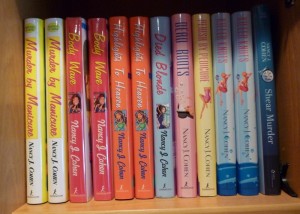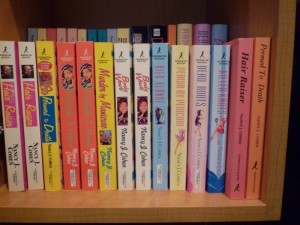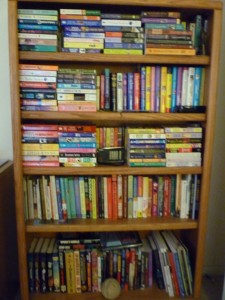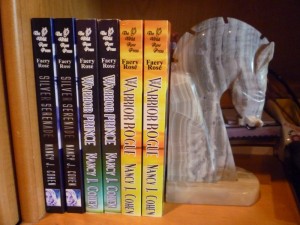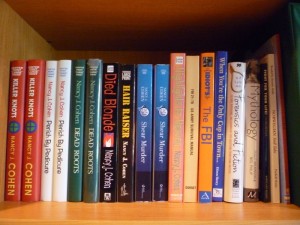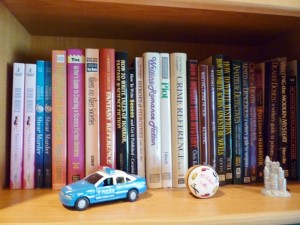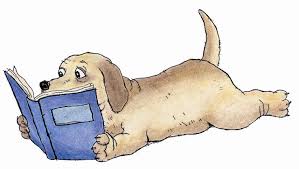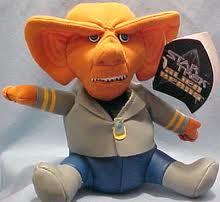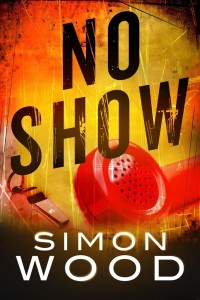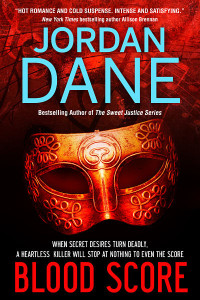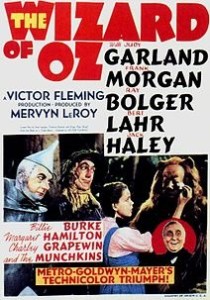Jordan Dane
@JordanDane
We have another brave soul who anonymously submitted their intro to a book entitled THE SCISSORGATE. My comments on the flip side.
The Scissorgate
January 2002
The tire treads dug into the snow covered road, shattering the icy surface, as the car with government issued plates pulled over. The car’s exhaust blew billows of white steam that hung in the air before dissipating. The Chicagoan neighborhood was still and the air was light and brittle. The two men prepared to approach the modest home at 428 Lincoln Drive.
Even with the heater running they could still feel the bite in the freezing air. As they exited the vehicle, they immediately squared the hard shiny brim of their service caps across their foreheads. Frosted vapors expelled from their lips and noses with every breath. Their patent leather shoes, shined to a mirrored finish, crunched over the snow as they passed through the gate across the small yard. The naked branches, like fingers on the trees, pointed accusingly and directed them to leave. No matter how well groomed, with their hard starched lines and mirrored shoes, in every way their presence was an assault and even nature knew they shouldn’t be there.
“Jaxon, son, you left your socks and shoes in the middle of the living room again!” Olivia yelled as she bent to pick up the discarded items.
“That boy would lose his head if it weren’t attached,” she mumbled. She started toward his room when a knock at the door stopped her in her tracks.
She couldn’t imagine anyone being out in the weather as cold as it was. But unbeknownst to her, the chill the two soldiers brought to her doorstep was far more than Mother Nature could ever conjure.
Olivia saw two dress blue uniforms standing on her porch. Her mouth went instantly dry while her upper lip became beaded with sweat. Every Army wife’s worst nightmare. Her heart painfully began to thud against her sternum, screaming to escape.
Don’t panic. Jason’s home early to surprise us. He always found new ways to surprise her and Jaxon. She tried to convince herself that that is what brought these two to her home. But something about the soldiers standing on the other side of the glass front door . . . something about their stillness . . . the tension so thick and heavy made the seconds pass like minutes but her thoughts raced out of control. They’re in dress blues. It’s too formal. Where’s Jason?
“Ma’am are you Mrs. Olivia Parks?” The first frozen soldier finally broke the silence.
Critique:
Tag line
I like the use of tag lines to immediately let the reader know when and where the story scene takes place. In this case, the date of January 2002 is used, but for a bit of house cleaning, I would add another line – Chicago, Illinois – so the use of “Chicagoan” would not be necessary. This is a very minor point. Maybe it wouldn’t bother anyone else.
First line structure
The very first line of a book should stir some element of mystery or capture the imagination of the reader, such that if the sentence stood alone, it might make the reader want to read the book just to know more. Many readers post their favorite beginning lines on Goodreads, for example. This structure of this sentence could be stronger, since the subject (the car) is at the end of the line. See Recommendations for suggestions on a different focus for the first line.
Point of View (POV)
1.) For the first two paragraphs, there is no clear POV. It’s as if there is an omniscient narrator until the action gets to Olivia and the POV switches to her. There are two men in the government issued car and the word “they” is used to describe them. To make the POV clearer, it would be better if the action started with Olivia and she noticed the dark sedan pull onto her street. Create a mystery and center it on her emotion as she sees the car stop at her house.
2.) Another POV issue is the phrase “unbeknownst to her.” If Olivia doesn’t know whatever is unbeknownst to her, then it can’t be in her POV. An editor or agent would look at this first few paragraphs and see “head-hopping” POV and assume the rest of the book is full of it. I would suggest picking one POV per scene and stick with the action as if it’s through that character’s eyes. I usually select the character with the most to lose. In this case, Olivia is a solid choice since she’s worried about the bad news these soldiers are bringing to her door.
3.) The last line is a POV problem too. The reader is in Olivia’s POV, but she can’t possibly know that the soldier is frozen.
Setting/Over-writing
There is a lot of really pointed use of the cold weather in the first two paragraphs. I love a good setting and weather is a great way to emphasize the emotion of a scene, but I would prefer it be used more subtlety. As example of overly dramatic use of setting AND POV problems are these lines: The naked branches, like fingers on the trees, pointed accusingly and directed them to leave. No matter how well groomed, with their hard starched lines and mirrored shoes, in every way their presence was an assault and even nature knew they shouldn’t be there. It’s as if the Chicago chill and the icy trees have POV now. The trees are telling the soldiers they should leave and shouldn’t be there. This is over-writing to me. Similes and metaphors can be done effectively, but they should be more subtle and add clarity to what the main POV character is feeling, not inanimate trees.
Character Names
This is a minor point, but Olivia’s husband is named Jason, but the son is named Jaxon. Since I’m not sure how relevant this will be later in the story, if there are two characters with such similar names, the reader could be confused. I try to pick names using different letters in the alphabet, to make sure each name is more distinctive. This goes for secondary characters as well.
Recommendations
Since the main objective of this intro is to establish that Olivia has two soldiers at her door, presumably to give her bad news about her husband Jason, I would start with the anticipation of her getting that bad news. Have her see the car pull up. Maybe have her dealing with her son more directly, but trying to get him out of the room, while she deals with her emotions and the start of her horrific day.
Focus on her physical reaction to what she’s seeing – her heart racing, trembling fingers, unable to catch her breath and wanting to throw up, with flashes of her husband’s face in her mind as the soldiers walk to her door. A blast of cold air could hit her as she opens the door.
As they speak to her, where does her mind go? What does she see as the bad news hits her? She might focus on the details of the formal uniforms these men wear – their shiny shoes and belt buckles – or how a glob of ice melts on their shoes. But the point is to focus on Olivia and keep the POV in her head. That’s where the emotion is. The book may jump off into other characters and other action, but in this scene, it is about Olivia getting bad news.
What do you think, TKZers? What advice would you give this brave author if you were their critique partner?
Blood Score by Jordan Dane – Now Available on Amazon Ebooks at this LINK.
“Jordan Dane has an extremely skilled and talented hand at creating riveting suspense and characters that become real to us. You will find yourself living the story, holding your breath and turning the pages as fast as possible. I highly recommend BLOOD SCORE to everyone. It’s truly among my Top Ten reads of all time.”
~Desiree Holt

